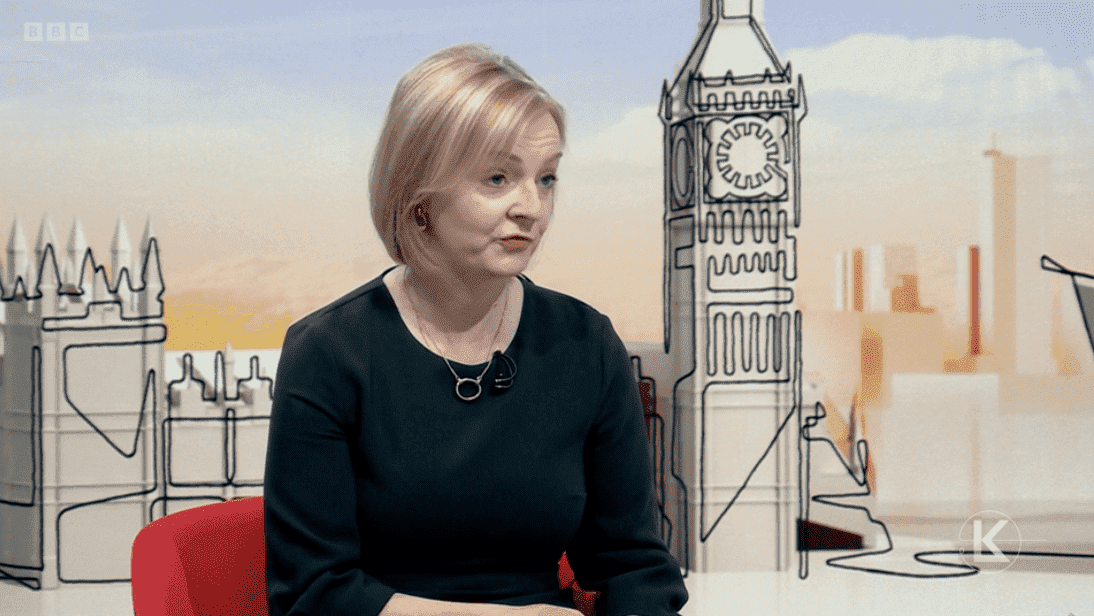What help will Liz Truss provide households and businesses with the coming cost-of-living crisis? That’s the question the frontrunner of the Tory leadership was pressed on as the Foreign Secretary appeared on the BBC’s inaugural Sunday with Laura Kuenssberg show. After ducking out of a planned interview earlier this week with Nick Robinson, Truss once again refused to get into specifics as to what her offer to the public will be if she – as expected – is announced as the winner of the Tory leadership contest on Monday.
She did, however, give a timeline for action should she enter 10 Downing Street. Truss said she would act within one week of becoming Prime Minister – adding that she wanted to reassure voters that she understood the scale of the crisis with ‘eye watering’ bills and help would be coming. As for what this help would look like, Truss refused to say either way whether it could involve freezing the price cap – in a move similar to what Labour’s Keir Starmer has advocated.
It points to a more radical and unapologetic approach from the Truss government provided she sticks to her instincts once in power
Truss also discussed her plans for tax cuts – promising to present a full plan within a month as to how she would reduce taxes. She also attempted to clarify her position on Bank of England independence – saying she would not tell the bank what interest rates to set.
On the issue of tax, Kuenssberg asked Truss whether she thought her plan to reverse the national insurance tax was ‘fair’ – pointing to a graph which showed how it would benefit the richest by around £2,000 while offering only a small amount of relief for the poorest. However, rather than try to dodge the question, Truss held her ground here – and said that it was fair as you would expect those paying the most tax in the first place to benefit the most proportionally from such a tax cut. She suggested that Kuenssberg’s criticism pointed to the fact that the political conversation of the past two decades has focussed too much on redistribution of wealth and not enough on economic growth. It points to a more radical and unapologetic approach from the Truss government provided she sticks to her instincts once in power.
Elsewhere in the interview, Truss reflected on the campaign so far. It was put to her that she had long been underestimated by her colleagues but has now outwitted them all. Given the winner of the contest is still to be announced, Truss refrained from embarking on a victory parade. Instead, she said that she was not the slickest of politicians (a line her team think chimes with voters) but her record showed that she can deliver and that’s what she will do as prime minister.
When her rival Rishi Sunak was interviewed later in the show, he warned about the dangers of making politicians making promises they can’t keep. He said given the coming winter crisis energy rationing ‘should remain a tool in the toolbox’. As Truss has already ruled this out, it appeared to be a thinly veiled swipe at his rival. Ultimately it’s how Truss navigates this coming energy crunch in her first few months that will decide the tone for her premiership.







Comments